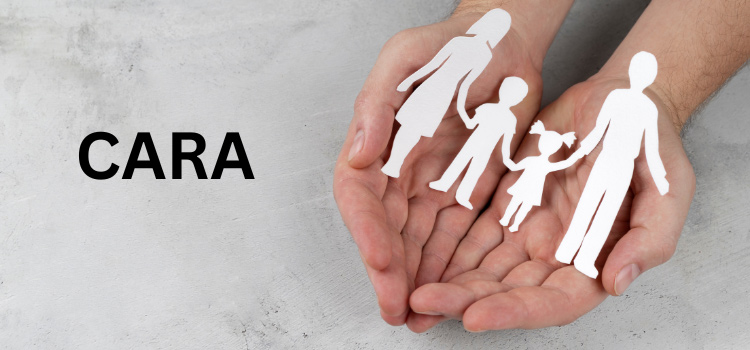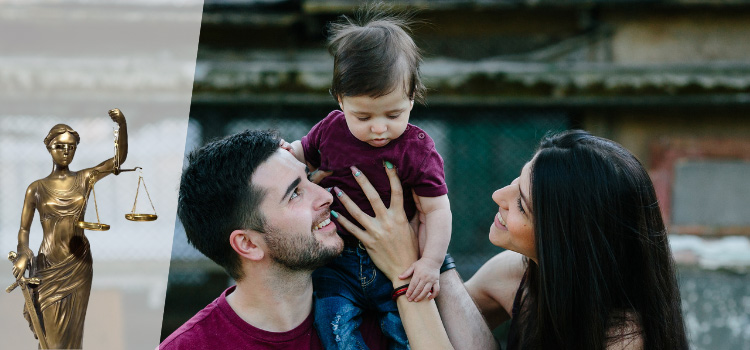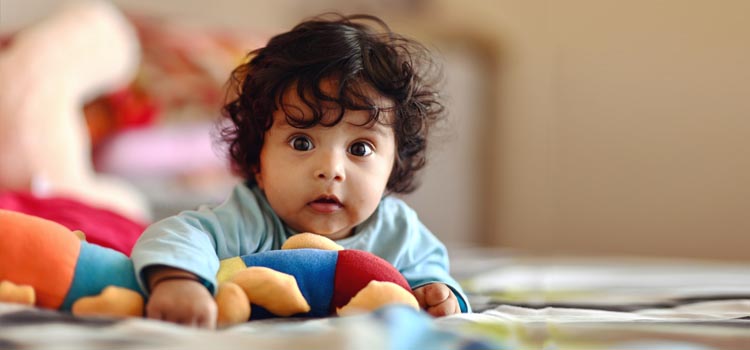Adoption Lawyers
Adoption Laws
|
Adoption is that beautiful part of the legal world which allows a issueless couple to dream and live a life with a child post adoption following the due legal process as per the law. Indian legal system allows not only the Indians but also the foreigners to adopt an Indian child legally and due procedure has been formulated for the same. Adoption is a legal process and is very strict in nature because it can lead to multiple complications (like inheritance and succession issues) and illegal activities (like human trafficking). For that reason, whenever adoption is sought, all the Prospective Adoptive Parent(s) (PAPs) invariably engage adoption lawyer to ensure that the legalities are met without any hassles. All adoption process is completed with the final act of having and executing an adoption deed as ordered by the court of law. Having said this it is critically important that the prospective adoptive parents hire a right lawyer who can guide them and assist them in adopting a child in a rightful manner. So, what Vidhikarya can do for you is that it will help you in finding and engaging a right and suitable lawyer for your cause. We at Vidhikarya endeavour to help you and assist you in finding the right lawyer in your city or otherwise so that you can go ahead and peacefully get your legal matter resolved. You do not have to worry on how to hire a lawyer or find an advocate for your matter. |
What the adoption law is and what it does?
|
Adoption is a process wherein a child is taken into a family lawfully and post adoption the child gets all the legal rights from the adopting parent(s) as a biological child would have got. Post adoption the child loses all the legal rights to be transferred from the biological parents that he/she may have got. Generally, adoption helps the society in two ways. Firstly, the parent(s) who are either issueless or have enough resources to support more kids get a chance to adopt and provide a good environment to the child. The adopting parents enjoy the bliss of having a child in their lives. Secondly, the child who is getting adopted, usually, gets an opportunity to lead a more conducive and better life. Most of the times in India a child is adopted from orphanages and that give the child a fair and right options to live a fruitful life and be part of the mainstream society. All said and done our Adoption process is nicely regulated and our government has enacted laws to ensure that trafficking and other illegal activities are not done in the garb of adoption.
|
What are the fundamental principles governing adoption?
|
The following fundamental principles shall govern adoptions of children from India, namely: · the child's interests shall be of paramount consideration, while processing any adoption placement · preference shall be given to place the child in adoption with Indian citizens and with due regard to the principle of placement of the child in his own socio-cultural environment, as far as possible · all adoptions shall be registered on Child Adoption Resource Information and Guidance System and the confidentiality of the same shall be maintained by the Authority. |
Who is eligible to adopt a child?
|
Following persons are eligible to apply for adoption of a child;
|
Who are the stakeholders in adoption process?
|
1. Central Adoption Resource Authority (CARA) - CARA ensures smooth functioning of the adoption process from time to time, issues Adoption Guidelines laying down procedures and processes to be followed by different stakeholders of the adoption programme. 2. State Adoption Resource Agency (SARA) - State Adoption Resource Agency acts as a nodal body within the State to promote and monitor adoption and non-institutional care in coordination with Central Adoption Resource Authority. 3. Specialised Adoption Agency (SAA) - Specialised Adoption Agency (SAA) is recognized by the State Government under sub-section 4 of section 41 of the Act for the purpose of placing children in adoption. 4. Authorised Foreign Adoption Agency (AFAA)- Authorised Foreign Adoption Agency is recognised as a foreign social or child welfare agency that is authorised by Central Adoption Resource Authority on the recommendation of the concerned Central Authority or Government Department of that country for coordinating all matters relating to adoption of an Indian child by a citizen of that country. 5. District Child Protection Unit (DCPU) - District Child Protection Unit (DCPU) means a unit set up by the State Government at district level under Section 61A of the Act. It identifies orphan, abandoned and surrendered children in the district and gets them declared legally free for adoption by Child Welfare Committee. |
Which laws govern the Adoption?
|
Hindu Adoption and Maintenance Act of 1956 Indian citizens who are Hindus, Jains, Sikhs, or Buddhists are allowed to formally adopt a child. The adoption is under the Hindu Adoption and Maintenance Act of 1956. Under this act, a single parent or married couple are not permitted to adopt more than one child of the same sex.
Guardian and Wards Act of 1890 Foreign citizens, NRIs, and those Indian nationals who are Muslims, Parsis, Christians or Jews are subject to the Guardian and Wards Act of 1890. Under this act, the adoptive parent is only the guardian of the child until she reaches 18 years of age. Juvenile Justice (Care and Protection) Act of 2015 A part of these laws deals with adoption of children who are in conflict with law including abandoned children. However, this act is applicable only to children who have been abandoned or abused and not to those children who have been voluntarily put up for adoption. Child Adoption Regulation, 2017 These rules laid down the complete procedure of adoption like; Fundamental principles governing adoption Child eligible for adoption Eligibility criteria for prospective adoptive parents Procedure relating to children for adoption Adoption procedure for resident Indians Adoption procedure for non-resident Indian, overseas citizen of India and foreign prospective adoptive parents Recognition, inspection and function of adoption agencies
|
What is the procedure to apply for adoption?
|
Legal adoption can only be done through Specialised Adoption agencies (SAAs) that are recognised by State Governments. Prospective Adoptive Parents (PAPs) an apply for adoption of a child through the agencies. It is a lengthy process. During the process the parents social, financial and medical backgrounds are checked and verified. The adoption is legally complete when the adoption deed is finally done as per the court where the matter is pending. Legal procedure: 1. The Specialised Adoption Agency (SAA) files an application in the court concerned, having jurisdiction over the place where the Specialised Adoption Agency is located, with relevant documents in original as specified in Schedule IX within ten working days from the date of matching of the child with the prospective adoptive parents (PAPs) and in case of inter-country adoption, from the date of receiving No Objection Certificate from the Authority, for obtaining the adoption order from court.
2. The Specialised Adoption Agency files an application in the given format as per Schedule XXVIII or XXIX, as applicable.
3. In case the child is from a Child Care Institution, which is not a Specialised Adoption Agency and is located in another district, the Specialised Adoption Agency shall file the application in the court concerned, in the district where the child or the Specialised Adoption Agency is located and in such a case, the Child Care Institution will be a co-petitioner along with the Specialised Adoption Agency and the Child Care Institution shall render necessary assistance to the Specialised Adoption Agency concerned.
4. In case of siblings or twins, the Specialised Adoption Agency files single application in the court.
5. Since an adoption case is non-adversarial in nature, the Specialised Adoption Agency does not make any opposite party or respondent in the adoption application.
6. The court holds the adoption proceeding in-camera and disposes of the case within a period of two months from the date of filing of the adoption application by the Specialised Adoption Agency, as provided under sub-section (2) of section 61 of the Act.
7. The adoptive parents shall not be asked in the adoption order to execute any bond or make investment in the name of the child, considering the fact that their psycho-social profile and financial status have already been ascertained from the Home Study Report and other supporting documents.
8. The Specialised Adoption Agency shall obtain a certified copy of the adoption order from the court and shall forward it to the prospective adoptive parents within ten days and it shall also post a copy of the order and update the relevant entries in the Child Adoption Resource Information and Guidance System.
9. Registration of an adoption deed shall not be mandatory as per the Act. (But it has been followed as a tradition in India and till today the courts have recognized this a valid document and step of adoption)
10. The Specialised Adoption Agency shall apply to the birth certificate issuing authority for obtaining the birth certificate of the child within three working days from the date of issuance of adoption order, with the name of adoptive parents as parents, and date of birth as recorded in the adoption order and the same shall be issued by the issuing authority within five working days from the date of receipt of the application.
11. The Specialised Adoption Agency shall submit an affidavit to the court while filing a petition as provided in Schedule XXIII. |
Commonly asked questions related to Adoption
|
· Can a male adopt a girl child? A single male cannot adopt a girl child but a married couple can do so. · Are foreigners allowed to adopt children from India? Yes, foreigners are allowed to adopt in India but they have to apply through the proper channel following the due process of law of adoption as prescribed. · What is the minimum age to adopt a child? The minimum age to adopt a child is 25 years and maximum age is 55 years. · How much time does it take to complete the process of adopting a child in India? It is difficult to ascertain the time taken but, in some cases, especially involving foreign PAPs the time taken has been more than 2 years. · Can a person from one religion adopt a child from another religion? Yes, there is no such bar. · What are the legal rights of an adopted child? All the rights that a biological child would have had. · Can a single parent adopt a child? A single female can adopt a child but single male cannot adopt a child as per the law.
|
Some important facts and cases about and under Adoption law
|
Personal belief and faith cannot dictate the adoption In the case of Shabnam Hashmi Vs. Union of India and Others, 2005, the Supreme Court has decreed that prospective parent irrespective of their religious background are free to adopt children after the prescribed procedure. The court in its order said that 'personal beliefs and faiths, though must be honoured, cannot dictate the operation of the provisions of an enabling statute. Interest of the Child comes first Noting that the interests should be kept “first and foremost” during adoption, the Supreme Court on Monday directed the Centre and the States to frame regulations under the Juvenile Justice (Care and Protection) Act, 2015 to implement the new guidelines for in-country and inter-country adoption to make the process transparent, friendly and fool-proof. “Whether it is in-country or inter-country adoption, the interest of the child should be supreme. There should be no compromise whatsoever,” Chief Justice of India T.S. Thakur, who headed a three-judge Bench, told the Centre.
|
Recommended Reads
Search Result : Expert Adoption Lawyers
Consult Expert Adoption Lawyers in India
Advocate Abhimanyu Shandilya
Advocate Anik
Bangalore
Advocate Anish Palkar
Mumbai suburban
Advocate Prabhakara S K Shetty
Bangalore
Advocate Arvind Tripathi
Allahabad
Advocate Shrikrushna Tambde
Nagpur
Advocate Karunasish Chakraborty
Kolkata
Advocate Jaswant Singh Katariya
Gurgaon






















